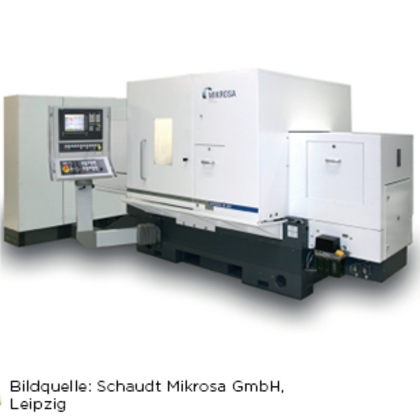Coolant Audit M5: New Machines

Objective
Lubricoolant optimisation for machine tools - complete lubricoolant engineering for a new machine
Description
Planning a new machine? We supply the complete lubricoolant engineering for your new turnover guarantees. The M5 Audit takes into account all possible component applications and product-specific processing cycles that your new machine will be expected to offer. Lubricoolant systems can then be clustered to suit the application. The result is a list of application-specific packages for your new machine tool.
Benefits to you
- Process supply matched to requirements
- Machine consumption optimised
- Environmentally friendly design
Scope of audit
- Design of
- > Nozzles
- Pressures and volume flows
- Feeds and components
- Pump types and volumes
- Frequency regulators
- < Account taken of application spectrum
- Consumption profile
- > Pumps (kWh)
- < Lubricoolant (pressure/volume) per cycle
- TARGET - optimal lubricoolant situation
- Offers for grindaix equipment packages (nozzles, pumps, components)
Planen Sie Ihr Audit!
Gerne beraten wir Sie ausführlicher zu Ihrem gewünschten Thema. Bitte senden Sie einfach eine unverbindliche Anfrage an info@grindaix.de, wir setzen uns schnellstmöglich mit Ihnen in Verbindung.
Unsere Maschinen-Audits
Der Ablauf eines Coolant Audit M
1 Besuch Ihrer Produktionsumgebung
Unsere Techniker kommen mit kompletter Messausstattung zu Ihnen. In kürzester Zeit (ca. 3 h/Maschine) wird die maschineninterne Peripherie aufgenommen.
2 Messung der Volumenströme
Mittels innovativster Messtechnik prüfen wir den aktuellen KSS-Volumenstrom pro Leitung. Je nach Audit kontrollieren wir dabei alle Szenarien Ihres Produktionsprozesses.
3 Aufnahme der Zuleitungen und Einbauten
Alle Rohrleitungen, vom Anschluss an die KSS-Versorgung bis hin zu allen Düsenaustritten, sowie alle Geometrie- und Typengrößen werden vollständig erfasst.
4 Aus- und Bewertung der Verschwendung
Wir zeigen, wie Zerspanstellen für höchste Produktivitätsansprüche robust versorgt und alle Verschwendungen in Sekundärzonen vermieden werden können.
